Aakas Zhiyuli
Practical Parallel Algorithms for Non-Monotone Submodular Maximization
Aug 21, 2023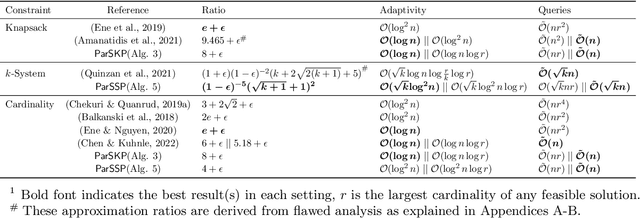
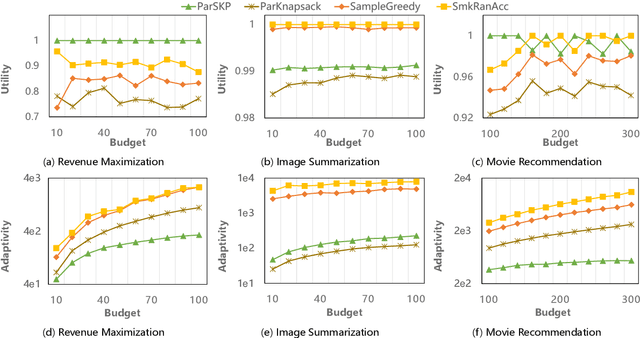

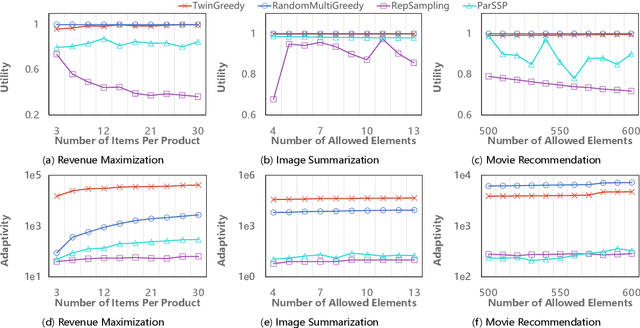
Abstract:Submodular maximization has found extensive applications in various domains within the field of artificial intelligence, including but not limited to machine learning, computer vision, and natural language processing. With the increasing size of datasets in these domains, there is a pressing need to develop efficient and parallelizable algorithms for submodular maximization. One measure of the parallelizability of a submodular maximization algorithm is its adaptive complexity, which indicates the number of sequential rounds where a polynomial number of queries to the objective function can be executed in parallel. In this paper, we study the problem of non-monotone submodular maximization subject to a knapsack constraint, and propose the first combinatorial algorithm achieving an $(8+\epsilon)$-approximation under $\mathcal{O}(\log n)$ adaptive complexity, which is \textit{optimal} up to a factor of $\mathcal{O}(\log\log n)$. Moreover, we also propose the first algorithm with both provable approximation ratio and sublinear adaptive complexity for the problem of non-monotone submodular maximization subject to a $k$-system constraint. As a by-product, we show that our two algorithms can also be applied to the special case of submodular maximization subject to a cardinality constraint, and achieve performance bounds comparable with those of state-of-the-art algorithms. Finally, the effectiveness of our approach is demonstrated by extensive experiments on real-world applications.
BookGPT: A General Framework for Book Recommendation Empowered by Large Language Model
May 25, 2023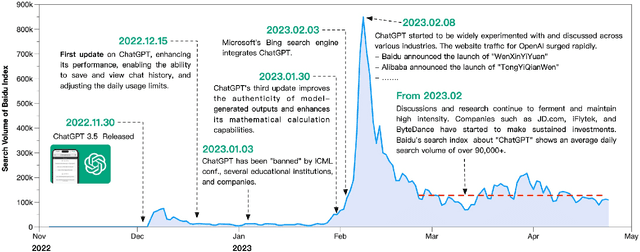
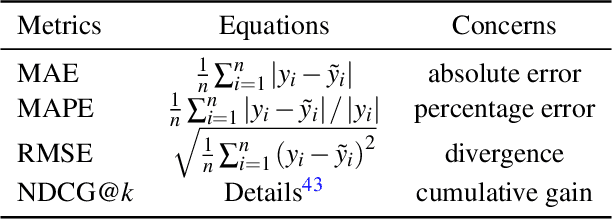
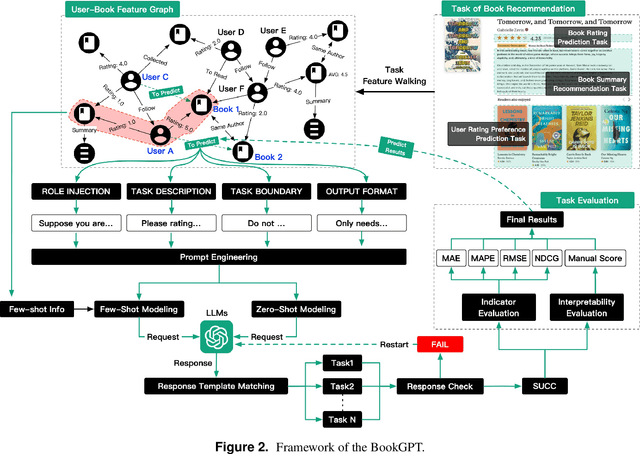

Abstract:With the continuous development and change exhibited by large language model (LLM) technology, represented by generative pretrained transformers (GPTs), many classic scenarios in various fields have re-emerged with new opportunities. This paper takes ChatGPT as the modeling object, incorporates LLM technology into the typical book resource understanding and recommendation scenario for the first time, and puts it into practice. By building a ChatGPT-like book recommendation system (BookGPT) framework based on ChatGPT, this paper attempts to apply ChatGPT to recommendation modeling for three typical tasks, book rating recommendation, user rating recommendation, and book summary recommendation, and explores the feasibility of LLM technology in book recommendation scenarios. At the same time, based on different evaluation schemes for book recommendation tasks and the existing classic recommendation models, this paper discusses the advantages and disadvantages of the BookGPT in book recommendation scenarios and analyzes the opportunities and improvement directions for subsequent LLMs in these scenarios.
 Add to Chrome
Add to Chrome Add to Firefox
Add to Firefox Add to Edge
Add to Edge